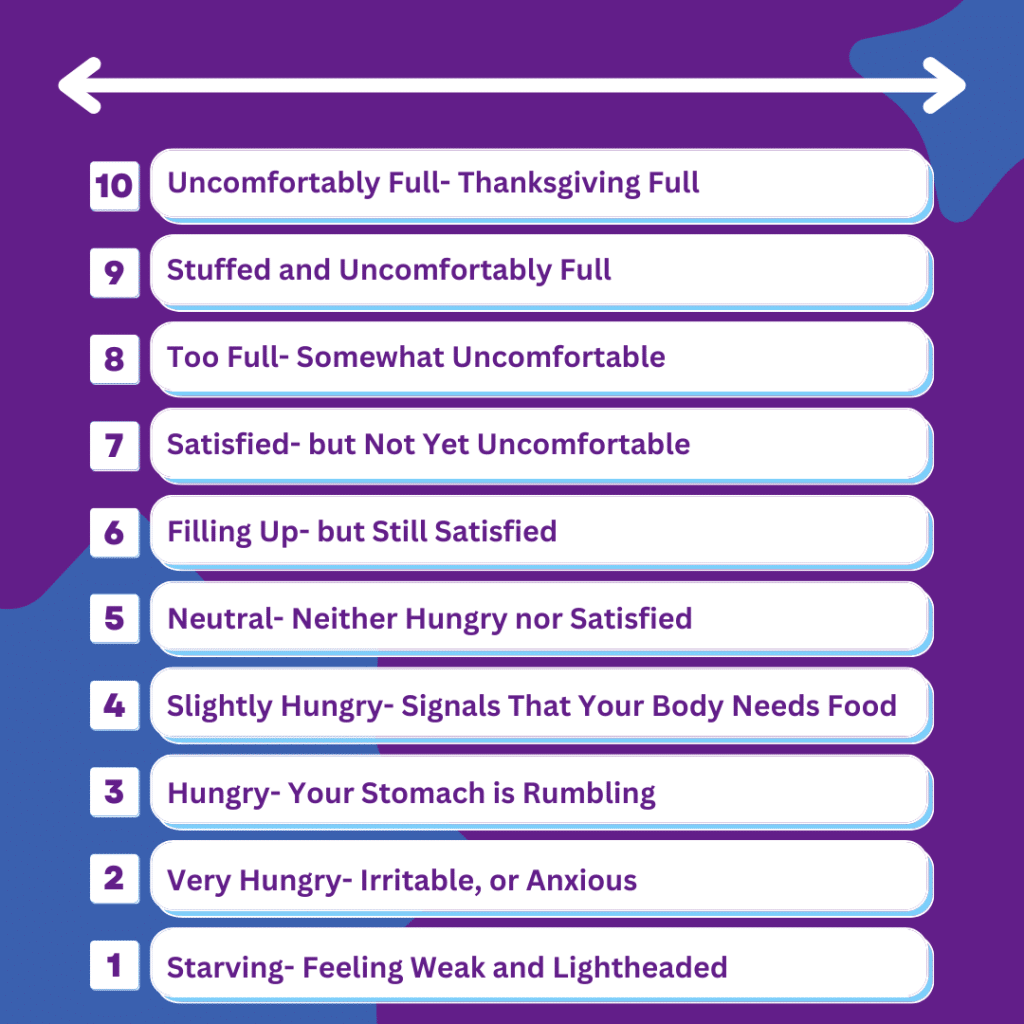
Kaitlyn Rawson, RD
Eat every 3-4 hours, balance protein and fiber. Even though your surgery is an amazing tool and restricts the amount of food you can eat at meals it still requires you to use it properly. After surgery, skipping meals and eating inconsistently can cause you to not meet your nutritional needs for the day, increase cravings, grazing, and intake at night. Eating protein and fiber-filled meals constantly throughout the day, every 3-4 hours will help control hunger, stabilize energy levels, and help you meet your nutritional needs.
Check-in with your hunger cues. Before sitting down to a meal ask yourself, “Where do I fall on the hunger scale?. Ideally, your physical hunger cues (grumbling) should kick in around numbers 3 or 4. While eating, take a pause and a moment to check in with your body’s cues and see how you are feeling. When you are done eating, ask yourself again, “Where do I fall on the hunger scale?” Ideally, your physical hunger should have diminished around number 6 or 7 (grumbling has subsided).

Plate your food and sit down to eat. This will help you be more mindful and prioritize your choices. When we plate our food and sit down to eat this helps us to be more mindful and intentional with our eating. Giving your meal your full focus can help avoid distractions, increase your presence at your meal, and help you enjoy the food.
Be present. Eat slowly and chew well, limit distractions, and be present at your meal. Make sure to sit at the table free of distractions (TV, driving, working, etc.) Focus on taking at least 20 minutes to eat your meal. If this is a struggle, set a timer and use that as a pacer for yourself. Focus on chewing your food well, aim for at least 20 chews per bite. Really focus on the texture change when chewing and enjoy the flavors, tastes, and smells of your food.

